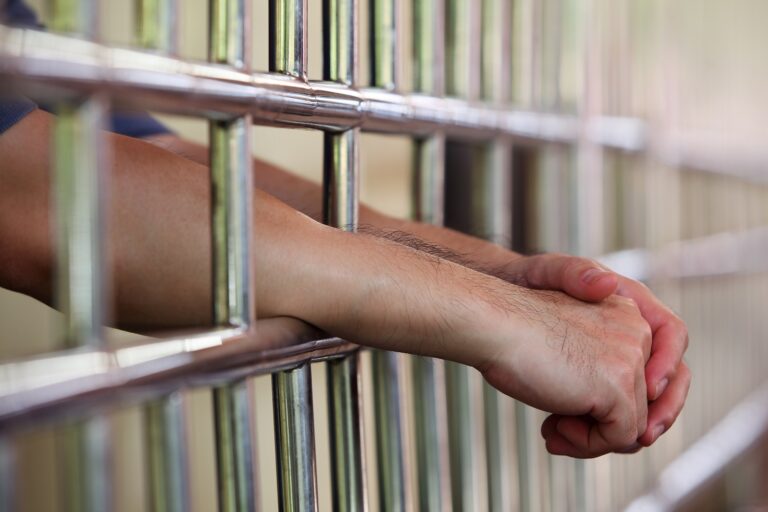China sent medical workers and equipment to a new hospital built in 10 days, infused cash into tumbling financial markets and further restricted people’s movement in sweeping new steps Monday to contain a rapidly spreading virus and its escalating impact.
Health authorities released updated figures of 361 deaths and 17,205 confirmed cases, an increase of 2,829 over a 24-hour period, as other countries continued evacuating citizens from hardest-hit Hubei province and restricted the entry of Chinese or people who recently traveled in the country. The World Health Organization said the number of cases will keep growing because tests are pending on thousands of suspected cases.
Chinese President Xi Jinping, presiding over a special meeting of the country’s top Communist Party body for the second time since the crisis started, said “we have launched a people’s war of prevention of the epidemic.”
He told the Politburo standing committee that the country must race against time to curb the spread of the epidemic and that those who neglect their duties will be punished. His speech was read by an anchor on the major evening news program of state broadcaster CCTV.
Reopening of schools was also delayed to keep the virus from spreading further in Hubei, where the 1,000-bed hospital in the provincial capital Wuhan was completed in just 10 days. A second hospital with 1,500 beds will open within days. Restrictions were tightened still further in one city by allowing only one family member to venture out to buy supplies every other day.
Medical teams from the People’s Liberation Army were arriving in Wuhan to relieve overwhelmed health workers and to work at the new hospital, located in the countryside far from the city center. Its prefabricated wards, where patients began arriving by late morning, are equipped with state-of-the-art medical equipment and ventilation systems.
Leading Chinese epidemiologist Zhong Nanshan said additional hospital space was crucial to stopping the spread of new infections.
“The lack of hospital rooms forced sick people to return home, which is extremely dangerous. So having additional (beds) available is a great improvement,” Zhong told state broadcaster CCTV.
Zhong played a major role in overcoming China’s 2002-2003 outbreak of SARS, a coronavirus from the same family as the current pathogen.
In a sign of the economic toll of the outbreak, China’s Shanghai Composite index plunged nearly 8% on the first day of trading after the Lunar New Year holiday. That despite a central bank announcement Sunday that it was putting 1.2 trillion yuan ($173 billion) into the markets.
“We are fully confident in and capable of minimizing the epidemic’s impact on economy,” said Lian Weiliang, deputy chief of the National Development and Reform Commission, at a news conference in Beijing.
Hong Kong’s leader, Carrie Lam, announced Monday that the semi-autonomous territory will shut almost all land and sea border control points to the mainland from midnight to stem the spread of the virus. She said only two border checkpoints — at Shenzhen Bay and the bridge to Macau and Zhuhai — will remain open.
More than 2,000 hospital workers had gone on strike earlier in the day, demanding a complete closure of the border, and their union has threatened a bigger walkout Tuesday.
Hong Kong has recorded 15 cases of the virus and has cut flights and train and bus connections to the mainland, but a push is growing for it to close the border completely. Strike organizers say about 6,000 medical staff were prepared to participate. Hong Kong was severely impacted by the SARS outbreak, which many believe was intensified by official Chinese secrecy and obfuscation.
South Korea, which has 15 confirmed cases, was quarantining 800 soldiers who had recently visited China, Hong Kong or Macao or had contact with people who had, defense ministry spokeswoman Choi Hyunsoo said. Military service is required of all young South Korean men to guard against the threat from the communist North.
More than 300 Egyptians who were flown home from Wuhan on Sunday were quarantined in a hotel for at least 14 days.
In Beijing, officials sought to reassure the country’s 1.4 billion people of adequate supplies of face masks and disinfectant, despite reported shortages in parts of the country.
The Philippines banned the entry of all non-citizens from China after two cases were confirmed there, including the only death outside China. The U.S., Japan, Singapore, Indonesia, New Zealand and Australia have imposed similar restrictions despite criticism from China and WHO’s guidance that such measures were unnecessary.
About 150 cases have been reported in two dozen other countries. The Philippine Health Department said a 44-year-old Chinese man from Wuhan died from the virus and his companion remained hospitalized. Vietnam’s confirmed cases increased to eight, including a Vietnamese American man who had a two-hour layover in Wuhan on his way from the U.S. to Ho Chi Minh City.
The U.S. total rose to 11, mostly involving recent travel to Wuhan. The U.S. said Sunday that Americans who had traveled in China within the last 14 days would be routed to designated airports for enhanced health screenings and most non-Americans who recently were in China would be denied entry.
At an online briefing, foreign ministry spokeswoman Hua Chunying accused the U.S. of overreacting, acting against WHO advice and “spreading fear.”
“The U.S. government hasn’t provided any substantial assistance to us, but it was the first to evacuate personnel from its consulate in Wuhan, the first to suggest partial withdrawal of its embassy staff, and the first to impose a travel ban on Chinese travelers,” Hua said.
Amid accusations of a slow official response to the outbreak, six officials in the city of Huanggang, next to Wuhan in Hubei province, were fired over “poor performance” in handling the outbreak, the official Xinhua News Agency reported. It cited the mayor as saying the city’s “capabilities to treat the patients remained inadequate and there is a severe shortage in medical supplies such as protective suits and medical masks.”
At the same time, the head of the World Health Organization said Monday in Geneva that it was working with Google to ensure that searches about the new virus turned up information from the U.N. health agency first, part of efforts to fight “rumors and misinformation” about the outbreak.
Tedros Adhanom Ghebreyesus told the opening of WHO’s executive board meeting that social media platforms such as Twitter, Facebook, Tencent and TikTok “have also taken steps to limit the spread of misinformation.”
With no end to the outbreak in sight, authorities in Hubei and elsewhere extended the Lunar New Year holiday break, due to end this week, well into February to try to keep people at home and reduce the spread of the virus. All Hubei schools are postponing the start of the new semester until further notice.
The trading and manufacturing center of Wenzhou, with nearly 10 million people in coastal Zhejiang province, confined people to their homes, allowing only one family member to venture out every other day to buy necessary supplies. Huanggang, home to 7 million people, imposed similar measures on Saturday.
With more countries imposing restrictions on travelers from China, and reports of discrimination against Chinese abroad, the country’s diplomats began speaking out.
Chinese ambassador in Sri Lanka Cheng Xueyuan expressed worries over Chinese people being turned away by restaurants and taxis in the Indian Ocean island nation.
“We understand the concerns of (the) Sri Lanka public but we at the same time hope that they could feel China’s responsible attitude and see the forceful and effective measures taken by China,” Cheng said.
The crisis is the latest to confront Chinese leader Xi Jinping, who has been beset by months of anti-government protests in Hong Kong, the reelection of Taiwan’s pro-independence president and criticism over human rights violations in the traditionally Muslim territory of Xinjiang. Meanwhile, the domestic economy continues to slow, weighed down by slowing demand and the trade war with Washington.
(AP)











